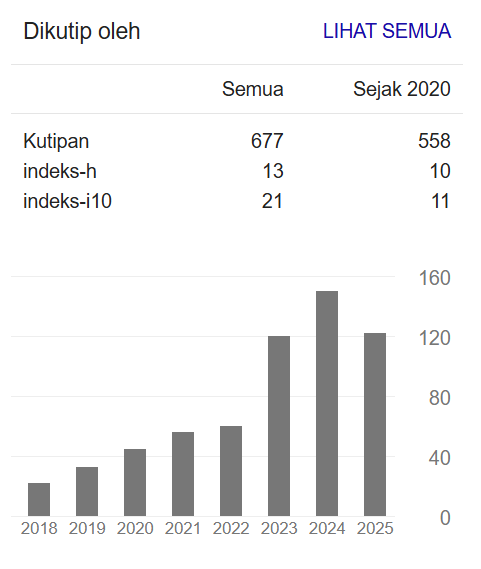THE DOCTRINE OF SUFI PHILOSOPHY AS A POWERFUL ANTIDOTE TO GLOBAL TERRORISM
DOI:
https://doi.org/10.20871/kpjipm.v10i1.247Keywords:
Humanism, Peaceful Coexistence, Sufism, Terrorism, World PeaceAbstract
The rise of global terrorism presents a critical challenge to peace and stability worldwide, fueled by divisive ideologies that promote hatred and violence. There is a growing need for alternative frameworks that promote understanding, tolerance, and reconciliation. This paper explores the doctrine of Sufi philosophy as a powerful antidote to global terrorism, examining its principles and practices in fostering peace and countering extremist ideologies. A comprehensive review of literature on Sufi philosophy, Islamic mysticism, and counter-terrorism strategies was conducted to elucidate the principles and practices of Sufism in promoting peace and countering extremist narratives. The findings reveal that Sufi philosophy embodies principles of love, compassion, and spiritual enlightenment, potent antidotes to the rhetoric of hatred and violence propagated by extremist groups. Sufi teachings emphasize the interconnectedness of humanity, fostering a culture of tolerance, understanding, and mutual respect. In conclusion, the doctrine of Sufi philosophy offers a transformative framework for countering global terrorism by addressing its root causes of ignorance, fear, and alienation. Through its emphasis on love, compassion, and spiritual enlightenment, Sufism provides a compelling alternative to extremist ideologies, inspiring individuals and communities worldwide to embrace a path of peace, unity, and understanding.
Downloads
References
Ahmed, Zahid Shahab. 2011. “Teachings of Sufism to Promote Interfaith Harmony.” Peace Insight. 2011. https://www.peaceinsight.org/en/articles/taangh-wasaib-organization-rubina-profile/.
Akhtar, Shabbir. 1998. “Islam and the Challenge of the Modern World.” In Liberal Islam: A Source Book, edited by Charles Kurzman, 0. Oxford University Press. https://doi.org/10.1093/oso/9780195116212.003.0033.
Bruinessen, Martin van, and Julia Day Howell. 2007. Sufism and the “Modern” in Islam. London: I.B. Tauris.
Chaudhary, Shahid A. 1998. Sufism is not Islam. New Delhi: Regency Publications.
DeGorge, Barbara. 2005. From Piety to Politics: The Evolution of Sufi Brotherhoods. Washington DC: New Academia Publishing.
Dehlvi, Sadia. 2009. Sufism: The Heart of Islam. New Delhi: Harper Collins Publishers.
Ghosh, Shreyasi. 2014. “Understanding Terrorism in the Context of Global Security.” Socrates 2 (June): 89–106.
Hamdani, Sayyid Ali. 2009. Zakhirat-ul-Mulk. Translated by M. Riyaz Qadri. Srinagar: Gulshan Publishers.
Howell, Julia Day. 2001. “Sufism and the Indonesian Islamic Revival.” Journal of Asian Studies 60 (3): 701–29. https://doi.org/10.2307/2700107.
It, Suraiya, Syamsul Rijal, and Zaenuddin Hudi Prasojo. 2019. “Sufism and Religious Practices in Modern Lifestyle.” Religió Jurnal Studi Agama-Agama 9 (1): 01–21. https://doi.org/10.15642/religio.v9i1.1231.
Jenkins, Philip. 2009. “Mystical Power.” Boston.Com, 2009. https://archive.boston.com/bostonglobe/ideas/articles/2009/01/25/mystical_power/.
Lone, Niyaz Ahmad. 2022. “The Role and Significance of Taṣawwuf in Modern-Day Crisis.” Teosofia: Indonesian Journal of Islamic Mysticism 11 (1): 83–102. https://doi.org/10.21580/tos.v11i1.12030.
Malik, Jamal, and John Hinnells, eds. 2006. Sufism in the West. London: Routledge. https://doi.org/10.4324/9780203087206.
Nasir, Rabia, and Arsheed Ahmad Malik. 2013. “Role and Importance of Sufism in Modern World.” International Journal of Advancements in Research & Technology 2 (1): 1–9.
Nasr, Seyyed Hossein. 1987. Traditional Islam in the Modern World. London: Kegan Paul International Ltd.
Nizamie, S. Haque, Mohammad Zia Ul Haq Katshu, and N. A. Uvais. 2013. “Sufism and Mental Health.” Indian Journal of Psychiatry 55 (Suppl 2): S215. https://doi.org/10.4103/0019-5545.105535.
Rabasa, Angel, Cheryl Benard, Lowell H. Schwartz, and Peter Sickle. 2007. “Building Moderate Muslim Networks.” RAND Corporation. https://www.rand.org/pubs/monographs/MG574.html.
Rafiqi, Abdul Qaiyum. 2009. Sufism in Kashmir. Srinagar: Gulshan Books.
Rizvi, Syed Qamar Afzal. 2016. “Combatting Violent Extremism: Could Sufi Islam Be the Cure-All?” Qantara.De. April 29, 2016. https://qantara.de/en/article/combatting-violent-extremism-could-sufi-islam-be-cure-all.
Schlegell, Barbara R. van. 2002. “Translating Sufism.” Journal of the American Oriental Society 122 (3): 578–86. https://doi.org/10.2307/3087525.
Sells, Michael A. 1996. Early Islamic Mysticism. New Jersey: Paulist Press.
Trimingham, John Spencer. 1971. The Sufi Orders in Islam. London: Oxford University Press.
Downloads
Published
How to Cite
Issue
Section
License
Copyright (c) 2024 Saroosh Ahmad Mir

This work is licensed under a Creative Commons Attribution 4.0 International License.





























